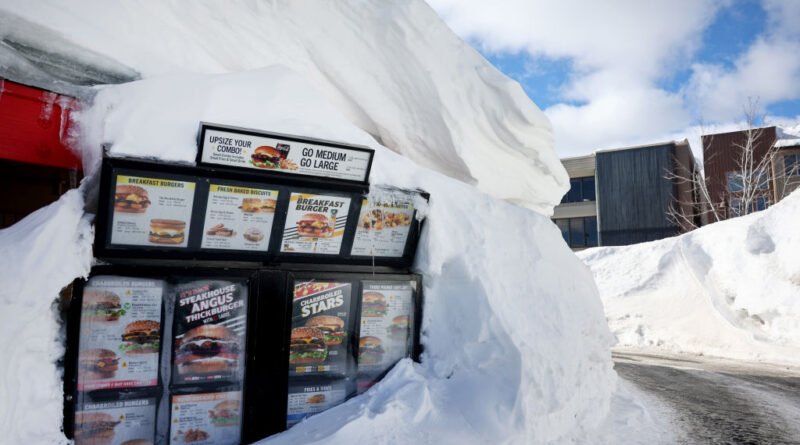Australian Franchise of US Fast Food Chain Experiences Setback with Closure of 20 Locations
KPMG Australia has been appointed as a voluntary administrator.
An Australian franchisee operating 24 Carl’s Jr. restaurants, the American fast-food chain, has entered voluntary administration, leading to the closure of multiple burger restaurants.
Big Four accounting firm KPMG has taken on the role of voluntary administrator for CJ’s QSR Group (CJQSR), which runs Carl’s Jr. locations in Australia.
As a result, 20 Carl’s Jr. stores have closed immediately, while four others affected by the voluntary administration are currently still open.
Another 25 restaurants owned and operated by third-party licensees will continue to operate with minimal impact, according to a spokesperson for KPMG.
Despite the challenges faced in Australia, Carl’s Jr.’s parent company, CKE, has reaffirmed its dedication to its international growth strategy.
“Australia remains a key growth market for CKE,” the company stated in a statement.
CJQSR is headquartered in Docklands, Melbourne, and employs around 1,000 individuals across Australia.
KPMG Administrators Assume Control
Voluntary KPMG administrators—David Hardy, George Georges, and Emily Seeckts—are now managing the day-to-day operations of CJQSR and conducting an urgent evaluation of the business and its functions.
“Based on the initial stages of this assessment, the Voluntary Administrators will continue to trade for the owned and operated CJ’s Group restaurants on a business-as-usual basis,” KPMG stated.
“Global operations, including restaurants owned and operated by licensees other than CJ Group, continue to function as usual.”
David Hardy, a restructuring services partner at KPMG Australia, highlighted that the primary focus will be on stabilizing the operations of CJ’s Group.
“We will be initiating an immediate sale process of the existing store network and operations,” he explained.
“We will be collaborating with all stakeholders, including employees, suppliers, and landlords, to maximize the outcome for all parties involved.”
The administrators will soon engage with suppliers, customers, landlords, and other key stakeholders, with a creditors’ meeting scheduled for Aug. 7.
Carl’s Jr. restaurants in Australia are known for their use of 100% Australian Angus beef and 100% Australian hand-breaded chicken tenders.
“We only use the freshest local produce and highest quality ingredients, guaranteeing the delicious flavors and mouth-watering textures we’re renowned for,” the company declares on its website.
In the United States, there are at least 1,065 Carl’s Jr. restaurants, including 655 in California. The company was founded in 1941 and is present in 28 countries worldwide.
25 Restaurants Unaffected by Administration
CKE, the American parent company of Carl’s Jr., is transitioning the 25 sublicensed restaurants to a direct licensed relationship and anticipates minimal changes in these locations.
“CKE is working closely with the Administrator, CJQSR, and other interested parties to navigate the process with the aim of minimizing the impact on employees, consumers, and the brand in Australia,” the company stated in a statement.
“Each of those 25 sublicensed restaurants remain open.”
CKE has underscored its commitment to the Australian market.
“CKE is dedicated to the people and the brand in the Australian market, and we have an exceptional community of independent licensees operating our restaurants across the country,” a spokesperson for CKE said.
Carl’s Jr. initially attempted to enter the Australian market in the 1980s but exited due to intense competition. However, in the mid-2010s, the brand made a significant effort to re-establish itself in Australia with a restaurant opening in Bateau Bay, New South Wales, in 2016.
Following this, the company expanded across Australia to multiple states including Queensland, Victoria, South Australia, and Western Australia.
In this competitive landscape, Carl’s Jr. faces stiff competition from established fast-food chains such as McDonald’s, KFC, Hungry Jack’s, Domino’s, Pizza Hut, Nando’s, Red Rooster, and Guzman y Gomez.





